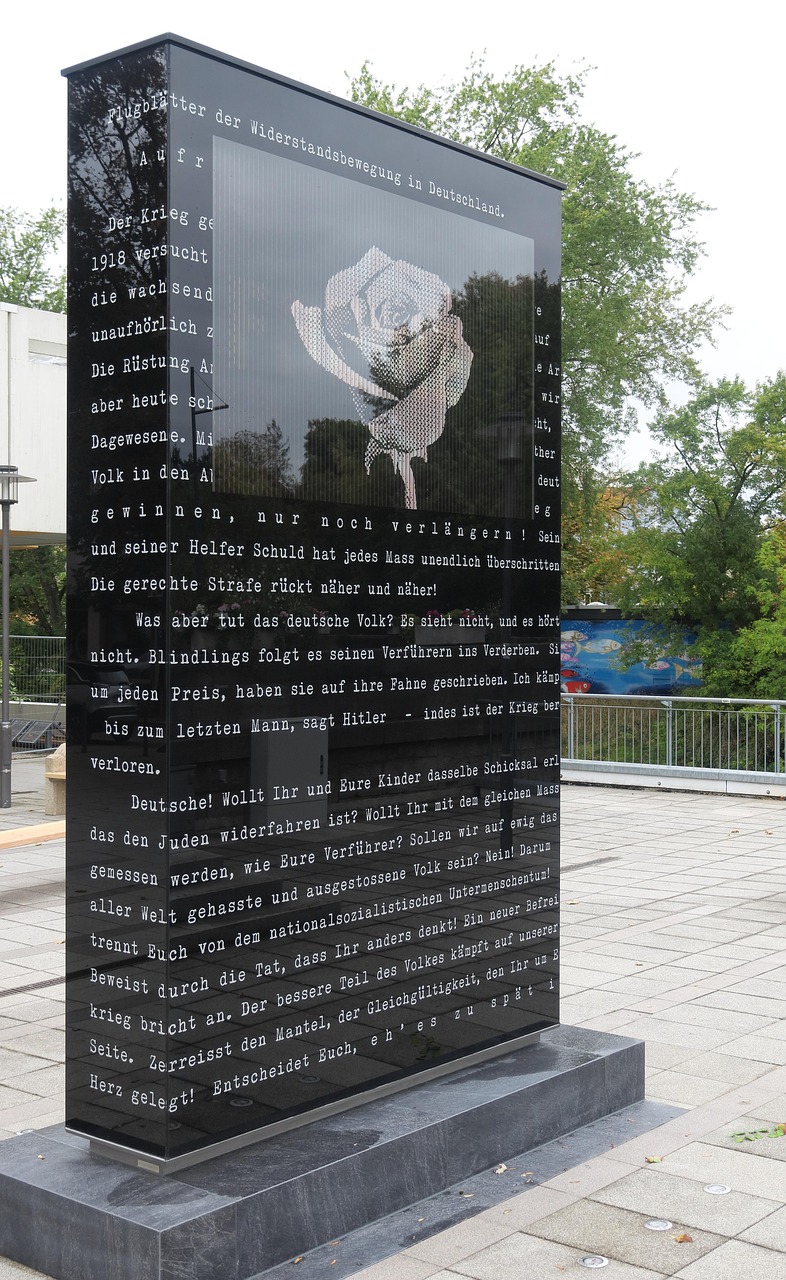Life as a woman #3 – Explorers, creators, reformers: These are the stories of remarkable women who inspire change, courage and creativity. In this edition, discover how Sophie Scholl fought for equality even when she knew her life was on the line.
Born in 1921 into a liberal and christian family, Sophie grew up with her five siblings and her parents in the south of Germany (Baden-Württemberg). Despite their family background, she and her brother Hans joined the Nazi youth organisations at an early age. During this time, they increasingly discovered contradictions between their own liberal upbringing and the totalitarian claims of National Socialism.
After leaving school and completing the Reich Labour Service, she began studying biology and philosophy in Munich. The group of friends around the Scholl siblings rejected National Socialism and founded the resistance group Weiße Rose (= White Rose) in 1942. Sophie was involved in the production and distribution of pamphlets at Munich University,
On 18 February 1943, Hans and Sophie distributed the 5th pamphlet, which contained an appeal to all Germans for a united Europe and a federal German state without abuse of power. They demanded “freedom of speech, freedom of confession, protection of the individual citizen from the arbitrariness of violent criminal states”. What is now enshrined in the Basic Law and the European Convention on Human Rights was already demanded by the White Rose in 1943. But arguably, today more people than ever are forced to put their lives on the line for fundamental human rights.

While Scholl was distributing the pamphlet in the university, she pushed some of the sheets from the 2nd floor into the courtyard. They were discovered by the caretaker and denounced to the Gestapo. She and her brother were then arrested. Sophie took the brunt of the blame in order to exonerate her friends and defended her views during the hopeless trial: “What we wrote and said, that’s what you all think too, only you don’t have the courage to say it”. Four days after her arrest, she was sentenced to death and executed on the same day at the age of 21.
Today, numerous streets, public squares and schools are named after Sophie Scholl. She is considered a role model and, along with others, one of the most important resistance fighters against Adolf Hitler and the Nazi regime.

